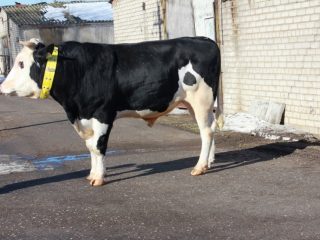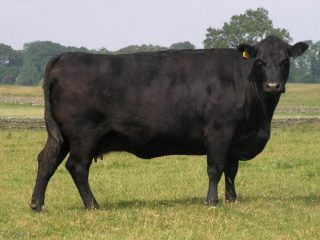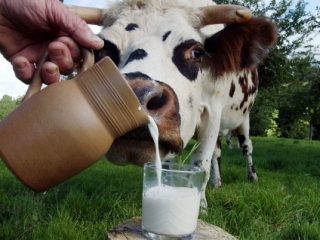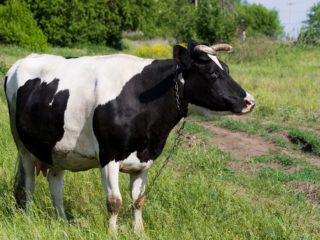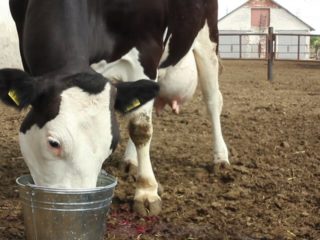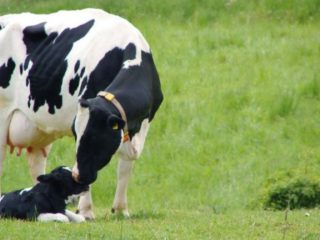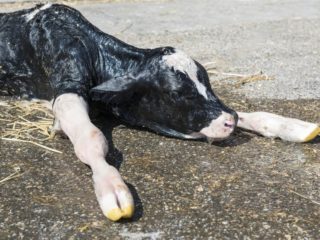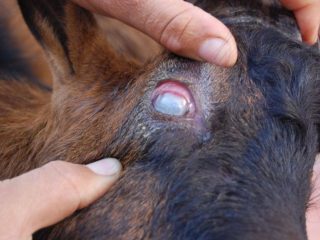Content
A calf grinds its teeth for many reasons. Sometimes this is a sign of a serious pathology in the individual’s body, and sometimes it occurs in the absence of health problems. Nevertheless, this phenomenon must be dealt with with the help of a veterinary specialist: find the causes and eliminate them.
Why does a calf grind his teeth?
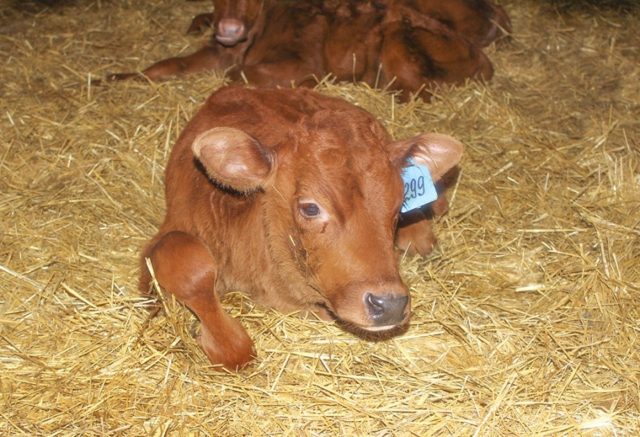
A newborn requires careful monitoring to prevent pathology in a timely manner.
After the birth of the calves, the animal owner will need to closely monitor the babies. In newborns, the final formation of organs, systems, tissues occurs, the foundations of proper digestion are laid, and the gastrointestinal tract is populated with the necessary microflora. If a calf grinds its teeth, you must first check the quality of the feed and make sure that no sand or soil particles have gotten into the feeder. If, in addition to grinding its teeth, the calf has also lost its appetite, then most likely there is some problem in the baby’s digestive system. In any case, this is a serious reason to take the calf to the veterinarian.
If we are talking about a minor violation, as a result of which the calf grinds its teeth, then the following reasons for this phenomenon can be noted:
- feeding cows with low-quality feed, which leads to newborns receiving defective milk;
- feeding the baby spoiled food or those that are contraindicated for him by age;
- the calf lacks a complete diet, well-balanced and enriched with essential vitamins and microelements.
Such errors in nutrition, lack of proper care for the baby, and unsanitary conditions in the room can cause such a phenomenon as teeth grinding.
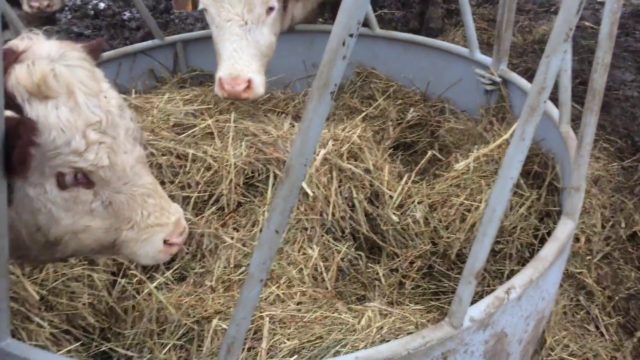
If such a problem occurs, you need to pay attention to the quality of the feed.
If we consider the grinding of teeth in a calf as a consequence of a serious illness, then the owner should pay attention to pathologies in which this symptom is one of the signs:
- white muscle disease;
- gastroenteritis;
- parakeratosis of the scar.
The cause of white muscle disease is a lack of certain vitamins and microelements; viral infections can also cause the problem. Symptoms of the disease, in addition to grinding teeth, include lethargy of the baby, stomach upsets, and cloudy eyes. With this disease, degenerative-dystrophic processes occur in the muscles. In this case, muscle fibers are replaced by other types of tissue or destroyed completely.In the early stages of the disease, laboratory diagnosis cannot be avoided, otherwise white muscle disease can be confused with other similar pathologies. Without a timely and correct treatment regimen, there is a high probability of death. Treatment consists of subcutaneous administration of vitamins A and E, and preparations with selenium.
Gastroenteritis is a consequence of poor diet. Poor-quality feed that lacks variety in properties leads to inflammatory processes in the mucous membranes of the stomach and intestines. In addition to grinding teeth, calves experience diarrhea, mucus in feces, lack of appetite, and elevated body temperature. To clarify the diagnosis, laboratory tests are performed. As a treatment, a starvation diet should be used; you can feed the calf with salted warm water. Next, acidophilus milk and reverse milk are carefully introduced into the diet. Then you can switch to a regular feeding diet, strictly monitoring the quality of feed.
Rumen parakeratosis is a gastrointestinal disease caused by errors in feeding. In addition to grinding teeth, the calf exhibits excessive salivation, weak peristalsis, and unclear contractions of the rumen. The diagnosis is made based on tests to determine the proventriculus environment and histamine levels. Treatment consists of restoring digestive function, as well as injections of vitamin A and magnesium preparations.
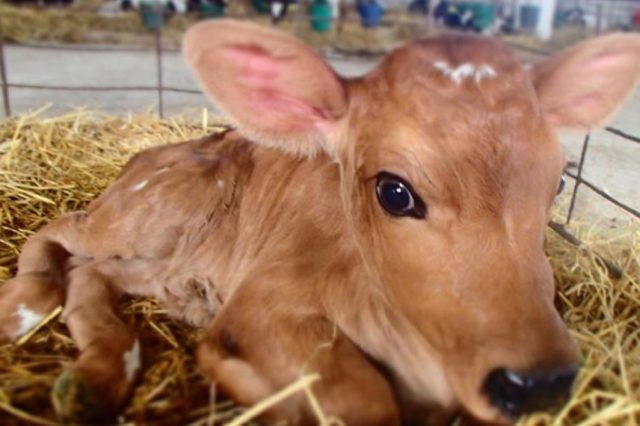
If a calf grinds its teeth and refuses to eat, you need to pay attention to its general condition
Diagnosis of the problem
If the calf begins to grind its teeth, it will be impossible to determine the cause of this phenomenon on your own; you will need the help of a veterinarian.Based on other clinical manifestations, the specialist will conduct the following studies:
- general blood analysis;
- general urine analysis;
- analysis for histamine levels.
After all diagnostic measures have been carried out, the veterinarian prescribes a treatment regimen and gives the necessary recommendations on feeding and caring for the individual.
What to do if your calf grinds his teeth
If a calf has been diagnosed with any disease that causes teeth grinding, then it is necessary to treat it for the underlying pathology. In all other cases, proper conditions for feeding and keeping livestock must be observed:
- high-quality drinking water and feed;
- a complete diet;
- vitamins and microelements;
- daily exercise
If these conditions are met, the problem will disappear over time.
Conclusion
If a calf grinds its teeth, it can be difficult to figure out the reason for this behavior on your own, especially if the baby has any problems with the digestive system. A veterinarian will help eliminate the pathology by conducting laboratory diagnostics and prescribing the correct therapy. The owner will be required to correct errors in nutrition and care, as well as carry out all necessary preventive measures.
